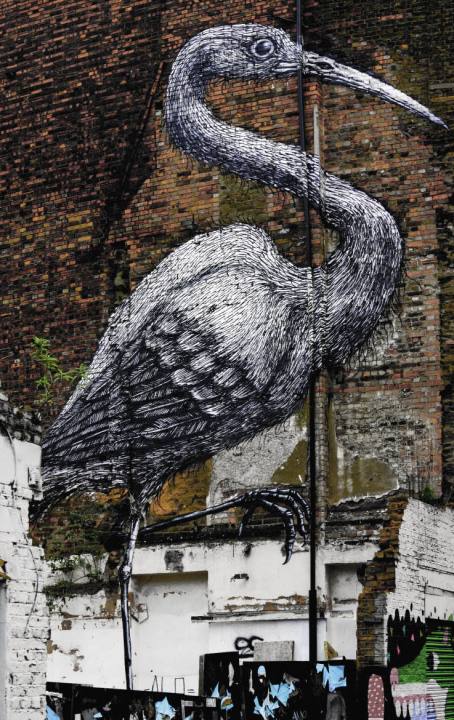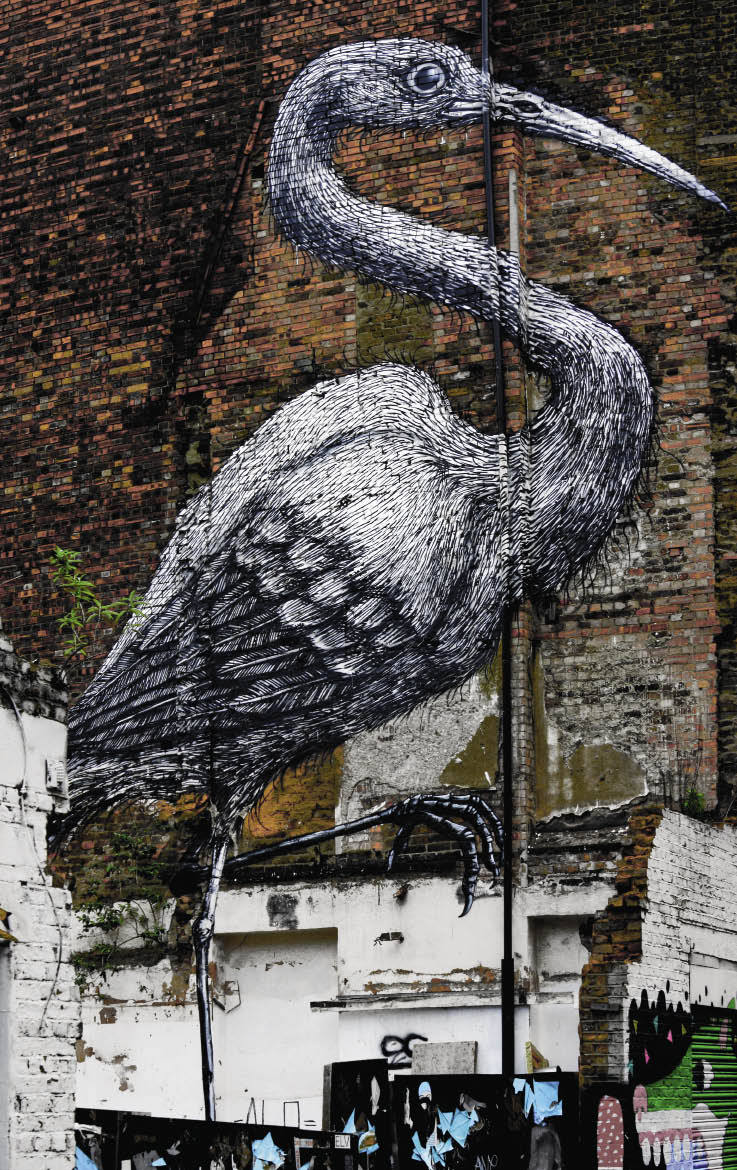Iain Sinclair, the London novelist and poet, is always on the move. From the industrial sumplands of Woolwich to the jagged riversides of Gravesend, he rakes unfrequented zones for literary signs and symbols, locations of forgotten films and other arcana. His previous book, Hackney, That Rose-Red Empire, revealed that Joseph Conrad had been a patient in the German Hospital in Dalston. Whenever I drive past that hospital (now converted into private flats), it resonates with the presence of the Congo-sick Polish author.
Typically, Sinclair explores London on foot, gathering all kinds of off-piste detail as he does so. The swimming pool in Jerzy Skolimowksi’s raw coming-of-age film Deep End, for example, stood on Cathall Road in Leytonstone, and had served as a (reekingly chlorinated) sexual trysting place until it was demolished in the early 1970s. Like the Polish-born Skolimowski, Sinclair views London through a distortingly surreal lens; a striking visual poetry and tart black comedy are extracted from even the most hopeless of London locations. Interestingly, though, Sinclair is not a Londoner; he was born in a Welsh mining town, the son of a Scots doctor.
Ghost Milk, Sinclair’s latest book, offers a mishmash of travel journalism and personal reminiscence. Much of it is taken up with reflections on the various kinds of work Sinclair undertook for Hackney borough council back in the 1970s. Strapped for cash, he toiled as a porter, gardener and bookseller. The drudgery of causal labour clearly moulded his vision of London. One of his odd jobs was rolling barrels round the cellars of Truman’s Brick Lane brewery. The brewery was plumb in the heart of Jack the Ripper’s London; tales of Jack and his depredations still circulated among the ullage men. Slowly the city began to accumulate itself as a cipher of information and ideas for books. Among Sinclair’s co-toilers from those far-off days was the actor Tom Baker, the future Doctor Who, who is tenderly recollected here.
Of course, much of the London which Sinclair began to map symbolically in the 1970s is unrecognisable now. The legion land piracy and ‘vanity architecture’ scams that shored up New Labour transformed the landscape. Much as Sinclair has been rude and excoriating about London’s heritage industry (the Spitalfields neo- Georgians have been a target), his real scorn is reserved for Tony Blair and his Berlusconi-hugging cronies, who managed to uproot entire London communities to make way for Olympic sports hotels and themed car parks. Funded by lottery millennium projects and dodgy offshore operations, the ‘regeneration’ resulted in swathes of east London being claimed by venal architects and developers with their ‘maquettes of impossible marinas’.
Hackney, where Sinclair has lived for almost half a century, is thus every day marred by the presence of more Ikea-like warehouses and storage boxes modelled on Kleenex dispensers. Incredibly, J.G. Ballard’s hard-edged fantasies of shopping mall mayhem and tower-block madness are slowly coming true. (‘The biggest problem facing civilisation’, Sinclair quotes Ballard approvingly, ‘is finding somewhere to park.’) As a poet of tarmac fringes and flyovers, Ballard has doubtless shaped Sinclair’s own brand of social surrealism. In his essay ‘Manson is Innocent’, Sinclair compares yellow tennis balls pushed into an Olympic site perimeter to ‘strange fruit losing its fur to the weather’. The yoking of the prosaic with the poetic is characteristic.
As a treasurer of London lore, Sinclair does not much care for any kind of change. The Labour government’s £785m millennium dome extravaganza (overseen by the jowly Lord ‘Dome’ Falconer who advised Tony Blair on, among other things, the lawfulness of the Iraq war), was one outrage too far, and drove Sinclair to seek new narratives outside London. In addition to his essays on Liverpool and Manchester are ones on post-Olympics Athens, post-communist Berlin and Morecombe Bay, now forever associated with the drowned cockle-pickers.
For all his jeremiads, Sinclair has lost none of his humour. At a Lea Valley development project, female cheerleaders are seen to jiggle furry pompoms that look like ‘Persian cats dipped in blue-dyed toilet cleaner’. For those unfamiliar with Sinclair’s work, Ghost Milk is a good place to start; I only worry that all that walking is hard on the heels.







Comments